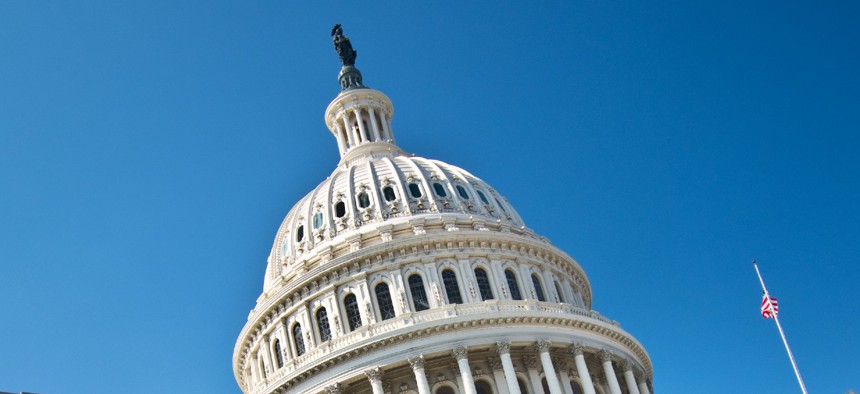
Douglas Rissing / iStock.com
Senate Rejects Measure to Match Domestic Agency Funding Increases With Equal Surge for Pentagon
Republicans accuse Democrats of hypocrisy; Democrats say amendment is absurd.
The Senate on Thursday voted against a measure to require equal spending for the Defense Department and the rest of government, avoiding a fight that could have imperiled many of President Biden’s key priorities at federal agencies.
Senate Republicans proposed the parity for defense spending amendment, which would have required a dollar-for-dollar match for any increase to non-defense discretionary spending, as part of the chamber’s consideration of a measure to inject the National Science Foundation and other federal research initiatives with a major cash infusion. Three Republicans—Sens. Chuck Grassley, R-Iowa., Mike Lee, R-Utah, and Rand Paul, R-Ky.—joined all Democrats in rejecting the measure.
In recent years, with budget caps in place and Republicans controlling the Senate and White House, Democrats demanded parity for non-defense and defense spending. As Republicans pushed their priorities by ramping up the Pentagon’s budget, Democrats successfully fought to ensure domestic agencies saw similar increases. Now that the caps have expired and Democrats control Congress and Biden sits in the Oval Office, Republicans have accused their colleagues of hypocrisy for no longer pursuing that goal. Biden has proposed a 16% increase to non-defense discretionary spending as part of his fiscal 2022 budget blueprint, in addition to trillions of dollars in new spending for infrastructure and other priorities.
“Two years after saying ‘Democrats have always insisted on parity in increases between defense and non-defense spending,’ Majority Leader [Chuck] Schumer [D-N.Y.] and his colleagues have clearly reversed their position,” said Sen. Jim Inhofe, R-Okla., who sponsored the amendment. “I’m disappointed that Democrats voted down my common-sense amendment that would have ensured that we employ all our tools of national power for strategic competition against China.”
Sen. Richard Shelby, R-Ala., the top Republican on the Senate Appropriations Committee, similarly warned that Congress would "shortchange America's military" without the amendment.
Sen. Patrick Leahy, D-Vt., who chairs the committee, countered that the amendment was “simply arbitrary and would lead to absurd results.” He explained that infrastructure spending, emergency hurricane relief and funding for veteran issues would all have to coincide with equal increases for Defense.
“This is no way to operate,” Leahy said. “We can have a debate about the appropriate levels for defense and non-defense spending in fiscal year 2022, but we should not do it by creating arbitrary rules and we should not do it on this bill.”
Biden has proposed just a 1.7% increase for defense spending in fiscal 2022, though Congress has yet to vote on topline funding levels. Such an uptick would prove much lower than what Biden has requested for nearly every domestic agency and would mark a dramatic shift from recent years. The White House is set to release its full, line-by-line budget next week.







